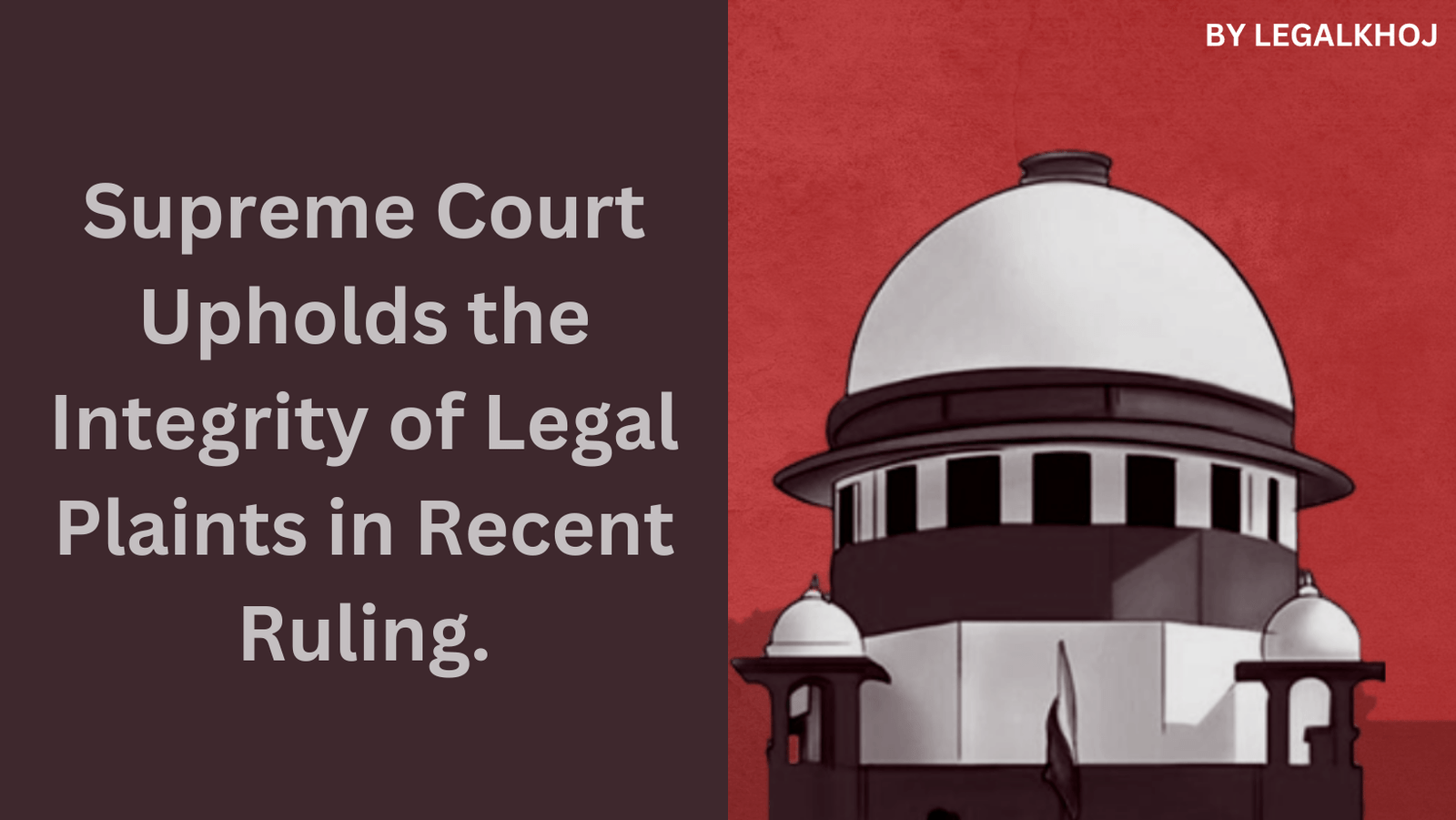On October 31, 2023, the Supreme Court delivered a significant verdict regarding the rejection of plaints in legal proceedings.
The Court ruled that a plaint cannot be rejected in part under Order VII Rule 11 of the Code of Civil Procedure, 1908. It also reiterated that when a plaint fails to disclose a cause of action, it is subject to rejection under Order VII Rule 11.
The Court explained that the fundamental test is to read the plaint in its entirety, assuming its contents to be true. If, after a thorough examination, the plaint discloses a cause of action, then any application under Order VII Rule 11 of the CPC must be dismissed. Conversely, if the plaint fails to establish a cause of action, it should be rejected. This rule was highlighted by a bench consisting of Justice PS Narasimha and Justice Sudhanshu Dhulia.
In the case under consideration, the plaintiffs had filed a lawsuit seeking partition and separate possession. The defendants, however, moved to reject the plaint under Order VII Rule 11 of the CPC. The plaintiffs and defendants 1 to 3 were part of a joint family that owned properties listed under Schedule A and B of the plaint.
Initially, the Trial Court dismissed the application to reject the plaint on the grounds that it did not reveal a cause of action. However, the High Court partially allowed the application under Order VII Rule 11, CPC, rejecting the Plaint with regard to the Schedule-A property.
The High Court’s decision was based on the fact that the property listed in Schedule A had been sold in 1919 through a registered Sale Deed, and the plaintiffs did not contest this sale or produce evidence to challenge it.
The Supreme Court found that the Karnataka High Court had misapplied the established principles of Order VII Rule 11 of the CPC. Rejecting the plaint in part, as the High Court had done, was also deemed contrary to the law. The Apex Court subsequently allowed the appeal.
The Supreme Court observed that the High Court had erred by delving into the merits of the case and prematurely passing judgment on the truth, legality, and validity of the sale deed. In essence, the High Court should not have assumed the completeness or execution of the alleged previous sale of the property.
The Apex Court, therefore, set aside the High Court’s order, dismissed the application under Order VII Rule 11, CPC, and reinstated the suit, including properties mentioned in Schedule A of the Plaint.
In conclusion, the Supreme Court’s ruling clarified the application of Order VII Rule 11 of the CPC and emphasized the importance of assessing the cause of action in a legal plaint. The verdict serves as a reminder that the rejection of plaints should be based on well-established legal principles and not involve premature judgments on the merits of the case.
Advocates P V Yogeshwaran, M.A. Chinnasamy, C Rubavathi, C Raghavendren, V Senthil Kumar, Devendra Pratap Singh, and Ashis Upadhay represented the Appellants, while S. Nandakumar, Deepika Nandakumar, Ashok Kumar Singh, Rajeev Gupta, and Naresh Kumar appeared for the Respondents.
Case Title: KUM. GEETHA, D/O LATE KRISHNA & ORS v. NANJUNDASWAMY & ORS. CIVIL APPEAL No. 7413 of 2023
Citation: 2023 (SC) 940.
Supreme Court reserves judgment on profane language in ‘College Romance’ case









Leave a Reply